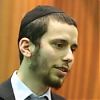There is No “regular” in Elul
It is a well-known analogy that in the month of Elul, Hashem is like a “King in the field.” But let us stop and think about what that means. Why a field? And what is this telling us about Elul?
The source of this Mashal is from Likutei Torah authored by the Alter Rebbe (first Chabad Rebbe). Over the years the Lubavitcher Rebbe OBM spoke extensively about this idea. The following is one of the interpretations that he shared.
In our life, we can find ourselves in one of three places. The city, the field, or in the desert.
“The City” is where the king lives. This is when we are involved directly with kedusha. When are in Shul or the Beis Medrash. On Shabbas or a YomTov. Normally, to feel Hashem’s presence we need to go to “The City” and find Him there.
“The Desert” is a desolate place which represents things that are in direct opposition to Hashem and His Torah. When we transgress and behave in a way that is contrary to Hashem’s will, we find ourselves in the desert.
“The Field” is a place we work. It’s not open Kedusha but it’s not bad either. This is our routine of eating, drinking, and doing business. It’s our regular life.
The power of Elul is that Hashem comes to the field. What we are required to do is to leave the desert. We need to do Teshuva for all of our wrongdoings. But Elul is also not a Yomtov or special day. We are not in the city. We are in the field, in our routine. And in Elul, we can experience a connection to Hashem there as well.
In other words, in Elul, there is no regular. Everything we do needs to be filled with an awareness that “The King” is standing right there, smiling at us and ready for us to reconnect. All that we do during this month needs to be filled with a consciousness of Hashem’s presence. That is the power of Elul.
So this Elul, let us live differently than we have until now. We can still do normal things, but we can’t be normal.
May we all experience Elul properly and Hashem will definitely see our efforts and bless us all with a Ksiva Vachsima Tova!
 Rabbi Levi Gourarie
Rabbi Levi Gourarie